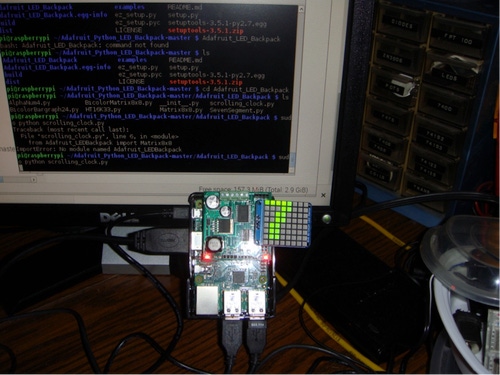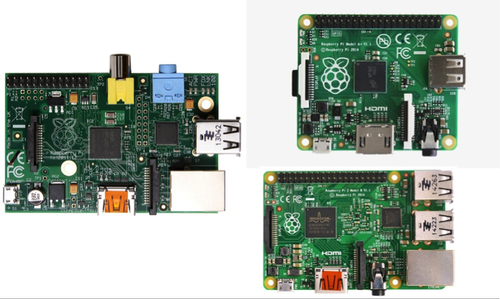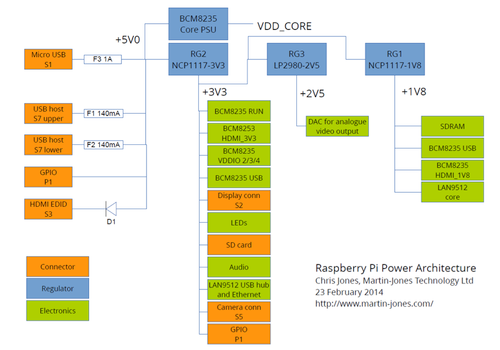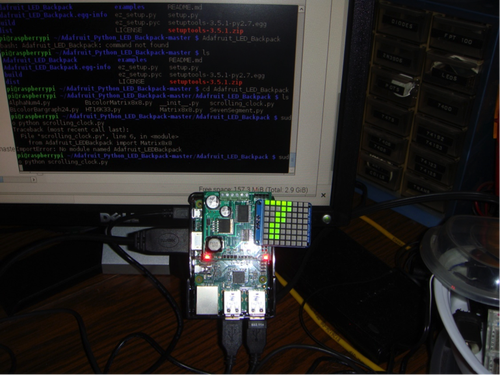How to Build Raspberry Pi Controllers With Python
July 3, 2015

Are you not quite sure what embedded development platform to use? Are you interested in learning Linux without the hassle of installing a distro on a target computing machine? If you answered yes to either of these questions, you're in luck. For a whole week -- July 6-10 -- I'll be conducting an online course, Building Raspberry Pi Controllers With Python . It is part of Design News' Continuing Education Center (CEC) series of educational online courses, sponsored by Digi-Key.

The Raspberry Pi development platform has exploded in popularity by allowing the maker, design engineer, educator, or hardware developer to build a variety of sophisticated embedded devices, which have been well documented. The Raspberry Pi has been used from among consumers to professionals working in industrial markets. It is a user-friendly, credit-card-size, Linux-based computer, and my early July course will cover a range of topics, starting with an introduction to building Raspberry Pi controllers. This first-day session will focus on how makers, design engineers, educators, and hardware developers all can use it as a rapid development platform. Also, in this first-day session I will provide an overview of the Raspberry Pi's architecture, discussing it along with design examples.
MORE FROM DESIGN NEWS: Raspberry Pi & Simulink: A Future of Graphical Programming

In addition, I'll be discussing the popular embedded programming language Python for the Raspberry Pi. Since the original intention of the Raspberry Pi was to teach computer programming to children, its creator, Eben Upton, selected Python because of its simplicity and the multitude of resources for learning how to code with this software tool.
This is the subject of my Day Two presentation in my online course. I will illustrate how quickly embedded applications can be created with the Raspberry Pi by presenting a hands-on circuit analysis calculator project for class participants to build. To aid the building of the circuit analysis calculator, I will walk through basic Python programming instructions along with the various integrated development environment (IDE) tools.

In the remaining course sessions, I will discuss how to build simple electronic controllers for turning on LEDs and reading switches using the RPi.GPIO library. Basic Linux commands for testing these controllers will be presented in my Day Three session using the LXTerminal.
Finally, to show how to rapid-develop DC and stepper motor controls with a Raspberry Pi, I will discuss how a low-cost development board called the RasPiRobot can greatly assist in building smart motion controllers. The RasPiRobot board not only can control DC and stepper motors, it can provide data and graphic images to embedded projects using LCDs and LED displays.
On the last day of the weeklong online course, I will provide a detailed discussion on how to use an Adafruit 8x8 Bi Color LED matrix to build a scrolling clock.
Registration is free, and each class will run a hour -- Monday, July 6 through Friday, July 10. Every class is also immediately archived for on-demand playback. Register here.
Don Wilcher is a passionate teacher of electronics technology and an electrical engineer with 26 years of industrial experience. He's worked on industrial robotics systems, automotive electronic modules/systems, and embedded wireless controls for small consumer appliances. He's also a book author, writing DIY project books on electronics and robotics technologies. His latest book, Make: Basic Arduino Projects, published by Maker Media, is on the Alabama State Department's approved Career and Technical Education (CTE) reading list. He's currently developing 21st century educational training products and curriculum focusing on Internet of Things (IoT) and Industrial Physical Computing for makers, engineers, technicians, and educators. Besides being an Electrical Engineer, he's a Certified Electronics Technician with ETA International and Alabama State Certified Electronics Instructor.
About the Author(s)
You May Also Like


.jpg?width=300&auto=webp&quality=80&disable=upscale)


